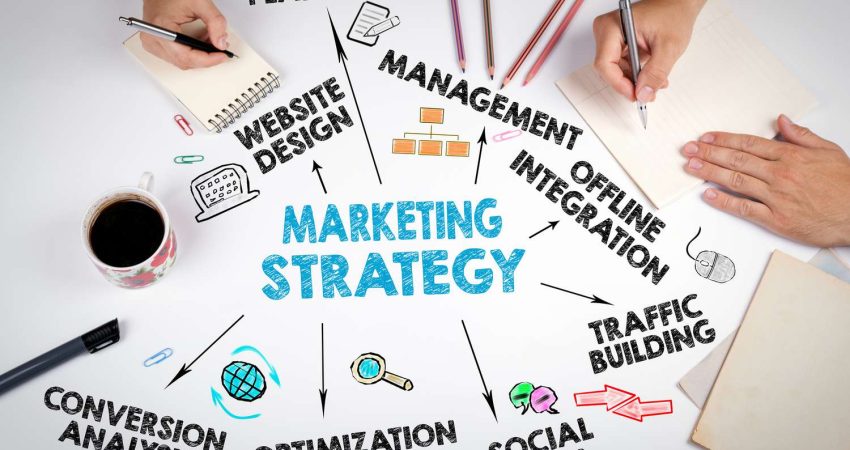
In recent years, digital transformation has reshaped the landscape of business operations, fundamentally altering how companies engage with their customers and market their products. This shift has been particularly pronounced in marketing, where traditional approaches are giving way to innovative, data-driven methods. Understanding the impact of digital transformation on modern marketing strategies is crucial for businesses aiming to thrive in today’s competitive environment.
Understanding Digital Transformation
Digital transformation refers to the integration of digital technology into all areas of a business, fundamentally changing how it operates and delivers value to customers. This transformation encompasses various technologies, including artificial intelligence (AI), big data analytics, cloud computing, and social media. By leveraging these tools, companies can enhance their operational efficiency, improve customer experiences, and create new business models.
The Shift to Data-Driven Decision Making
One of the most significant impacts of digital transformation on modern marketing strategies is the shift toward data-driven decision-making. In the past, marketing decisions were often based on intuition and experience. Today, businesses have access to vast amounts of data that can provide insights into consumer behavior, preferences, and trends.
1. Enhanced Customer Insights
With advanced analytics tools, marketers can analyze customer data to gain a deeper understanding of their audience. This allows companies to segment their customers effectively and tailor marketing messages to specific groups. For instance, e-commerce platforms like Amazon use data analytics to recommend products based on users’ past behavior, significantly increasing conversion rates.
- Takeaway: Utilize analytics tools to gather customer insights and refine your marketing strategies for better targeting.
2. Personalized Marketing
Digital transformation enables personalized marketing on an unprecedented scale. By leveraging data, companies can create customized experiences for their customers, enhancing engagement and loyalty. For instance, Netflix uses viewer data to recommend shows and movies tailored to individual preferences, keeping users engaged and reducing churn.
- Takeaway: Implement personalized marketing strategies to enhance customer engagement and loyalty.
The Rise of Omnichannel Marketing
Another significant impact of digital transformation is the rise of omnichannel marketing strategies. Customers now expect a seamless experience across multiple channels, whether they are shopping online, on mobile devices, or in physical stores.
1. Integrated Customer Journeys
Digital tools allow businesses to create integrated customer journeys that provide a consistent experience across various touchpoints. For example, a customer might discover a product on social media, visit the company’s website for more information, and finally make a purchase in a brick-and-mortar store. Each interaction should reinforce the brand message and facilitate the purchase process.
- Takeaway: Develop omnichannel marketing strategies to create a seamless customer journey and enhance brand consistency.
2. Real-Time Engagement
Digital transformation enables real-time engagement with customers, allowing businesses to respond to inquiries, comments, and feedback instantly. Social media platforms serve as vital channels for engagement, enabling brands to interact with customers in a personal and timely manner. This immediacy can strengthen customer relationships and build brand loyalty.
- Takeaway: Leverage social media and other digital channels for real-time customer engagement.
Automation and Efficiency
Digital transformation has also led to increased efficiency in marketing operations through automation. Automation tools streamline repetitive tasks, allowing marketers to focus on strategy and creativity.
1. Marketing Automation Tools
Tools like HubSpot and Marketo provide marketers with the ability to automate email marketing campaigns, social media postings, and lead generation processes. This not only saves time but also ensures that marketing efforts are consistent and timely.
- Takeaway: Invest in marketing automation tools to improve efficiency and allow your team to focus on higher-level strategies.
2. Data-Driven Campaign Optimization
Automation also extends to the optimization of marketing campaigns. By analyzing real-time data, companies can adjust their campaigns based on performance metrics, ensuring they allocate resources to the most effective strategies.
- Takeaway: Continuously monitor and optimize your marketing campaigns using automated tools to drive better results.
Evolving Consumer Expectations
Digital transformation has fundamentally changed consumer expectations. Today’s consumers are more informed and empowered than ever, leading to higher expectations for transparency, responsiveness, and personalization from brands.
1. Demand for Transparency
Consumers increasingly expect brands to be transparent about their values and practices. Companies that demonstrate authenticity and social responsibility are more likely to attract and retain customers. Brands like Patagonia have successfully built their reputation on transparency and environmental stewardship, resonating with today’s conscious consumers.
- Takeaway: Emphasize transparency in your marketing strategies to build trust and loyalty among your customers.
2. Focus on Customer Experience
The customer experience has become a vital focus of modern marketing strategies. Digital transformation provides businesses with the tools to enhance customer experiences, from personalized recommendations to responsive customer service. Companies that prioritize customer experience often see improved loyalty and higher customer lifetime value.
- Takeaway: Invest in enhancing the customer experience through personalized interactions and responsive service.
Conclusion
The impact of digital transformation on modern marketing strategies is profound and multifaceted. By embracing data-driven decision-making, omnichannel marketing, automation, and a focus on customer experience, businesses can adapt to the evolving landscape and meet the expectations of today’s consumers. As digital technologies continue to advance, staying attuned to these changes will be essential for organizations looking to thrive in a competitive marketplace.
Incorporating these insights into your marketing strategies will not only enhance your organization’s effectiveness but also position you as a leader in your industry. As the marketing landscape continues to evolve, the ability to leverage digital transformation will remain a critical factor in achieving lasting success.















